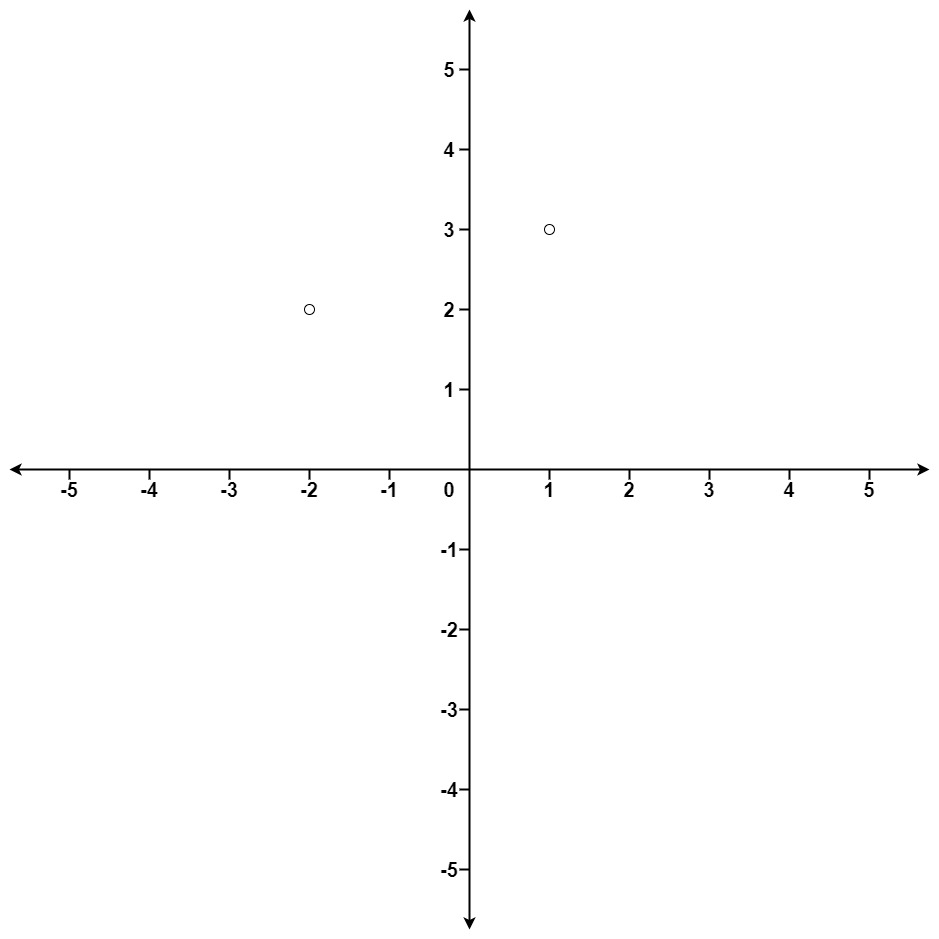K Closest Points to Origin
Problem
Given an array of points where points[i] = [xi, yi] represents a point on the X-Y plane and an integer k, return the k closest points to the origin (0, 0).
The distance between two points on the X-Y plane is the Euclidean distance (i.e., √(x1 - x2)2 + (y1 - y2)2).
You may return the answer in any order. The answer is guaranteed to be unique (except for the order that it is in).
Example 1:

Input: points = [[1,3],[-2,2]], k = 1 Output: [[-2,2]] Explanation: The distance between (1, 3) and the origin is sqrt(10). The distance between (-2, 2) and the origin is sqrt(8). Since sqrt(8) < sqrt(10), (-2, 2) is closer to the origin. We only want the closest k = 1 points from the origin, so the answer is just [[-2,2]].
Example 2:
Input: points = [[3,3],[5,-1],[-2,4]], k = 2 Output: [[3,3],[-2,4]] Explanation: The answer [[-2,4],[3,3]] would also be accepted.
Constraints:
1 <= k <= points.length <= 104-104 < xi, yi < 104
Solution
/**
* @param {number[][]} points
* @param {number} k
* @return {number[][]}
*/
var kClosest = function(points, k) {
let l = 0;
let r = points.length - 1;
// quickselect
while (l <= r) {
const pivotIndex = partition(points, l, r);
if (pivotIndex > k) { // kth before pivotIndex
r = pivotIndex - 1;
} else if (pivotIndex < k) { // kth after pivotIndex
l = pivotIndex + 1;
} else { // kth is pivotIndex
break;
}
}
return points.slice(0, k);
};
// partition all points < points[r] to left and > points[r] to right
var partition = function(points, l, r) {
const pivotDistance = distance(points[r]);
for (let i = l; i < r; i++) {
if (distance(points[i]) < pivotDistance) {
[points[i], points[l]] = [points[l], points[i]];
l++;
}
}
[points[r], points[l]] = [points[l], points[r]]; // put pivot at correct index
return l; // index of pivot
};
// square distance of point
var distance = function(point) {
return point[0] ** 2 + point[1] ** 2;
};
We will implement the quickselect algorithm. Recall that in quickselect, the partition function chooses a pivot p, and shuffles everything < p to the left of the array, everything > p to the right of the array (p is put between these two partitions), and returns the index of p. Since we want the k smallest values in terms of distance to the origin, if the index i returned by partition is:
> k, then thekthsmallest value must be before indexi.< k, then thekthsmallest value must be after indexi.= k, thenpoints[0:k + 1]must contain theksmallest values (ie.points[i]is thekthsmallest value).
Note that although quickselect has worst case runtime of O(n²), it is very fast in practice (ie. average runtime of O(n)).